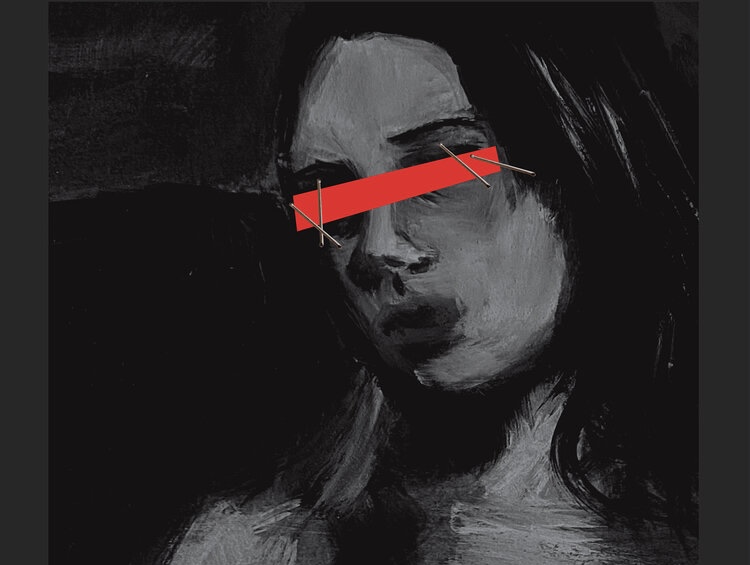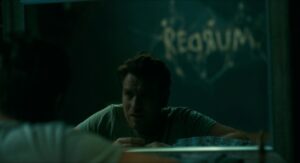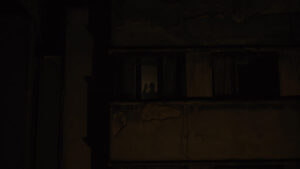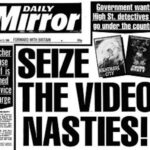Tell Me I’m Worthless is a tale about a haunted house of sorts in which our two main characters, Alice and Ila, spend a traumatic night alongside their best friend Hannah. Only Alice and Ila make it out however, with two very different versions of events. In order to cope, Alice falls down a path of drugs, alcohol, parties, and seeing ghosts of racist British musicians every night; while Ila goes down the TERF (trans exclusionary radical feminist) pipeline, spreading hate towards people like her former best friend Alice. As the house begins to pull them back, the pair have to set aside their differences to confront the reality of that fateful night, and return to the evil that stole their friend from them.
Oh boy, this was a hard one to rate. I love pretty much everything about the concept here. The house being a metaphor is really effective, the characters and what they represent are fascinating to follow and the political nature of it all ties everything up nicely. The story gripped me almost immediately, it felt refreshing to read something that felt so uniquely British and tackled issues that often rear their ugly head here. On that note, the topic of cultural identity in the UK is explored quite a bit in this book too — the bleak future (and present) of racism and anti immigration rhetoric seeping into every aspect of society feels more relevant than ever in 2025, 4 years after publishing.
Unfortunately there are a few things that had me quite conflicted on my rating. There is a whole lot of hate speech in this book. Like, an enormous amount. Usually that doesn’t necessarily mean anything, it clearly isn’t the authors viewpoint, and is simply meant to represent the worst in our main characters. I get the idea. The issue is there is not much nuance or subtlety with these ideas — it’s so over the top it often feels gross, edgy and unnecessary. Maybe that’s the point! It is horror after all! But giving so much free rein for fascist characters to express these bigoted ideologies never feels effective in creating a feeling besides “gross I want to skim this part”.
My other main issue — which also ties into my first one — is that sometimes the style of writing felt overindulgent. There are many instances in which long-running, dream-like scenarios and fantasies play out in full chapters without ever feeling like much was being said. Aspects of the multiple perspective structure worked for me; the Alice and Ila perspectives were effective at creating attachment to the characters and the backstory shown in the chapters from the house’s perspective were fascinating — but the fourth wall breaking completely took me out of the experience. It came across as pandering and forced, the point was effectively conveyed by the narrative already without it quite literally aiming it at the audience.
Ultimately it’s hard to recommend this, largely due to the unrelenting, excessive amount of hate speech towards numerous minority groups. Don’t get me wrong, it has a lot of worthwhile things to say, things that I agree with in the messaging, it just lacks subtlety and direction at times. This hasn’t turned me away from the author at all though, Alison Rumfitt is clearly talented and I would love to read more of her work.
3.5/5








